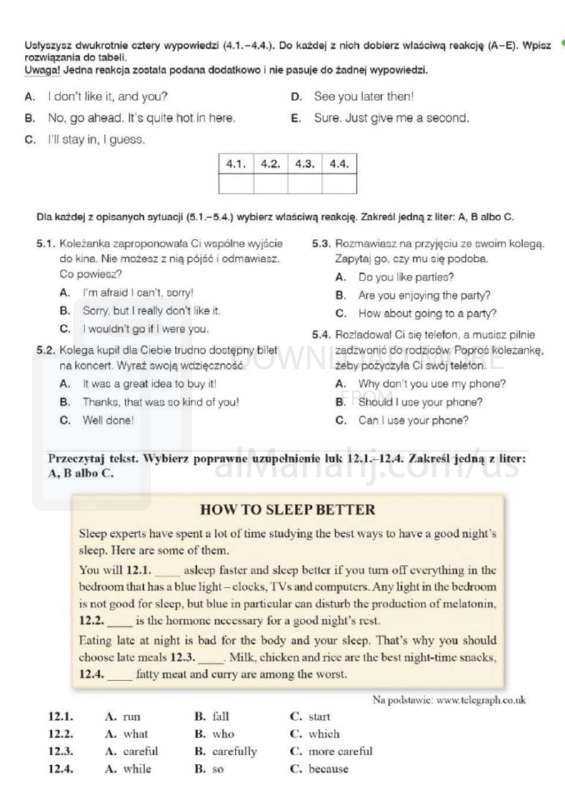| File info: The English language exam is a standardized assessment designed to evaluate an individual's proficiency in the English language. It measures a person's ability to understand and use English in various contexts, including reading, writing, listening, and speaking.
The exam is typically divided into different sections, each focusing on a specific language skill. These sections may include:
1. Reading Comprehension: This section assesses the ability to understand written English texts, such as passages, articles, or essays. Test-takers are required to read the texts and answer questions that test their comprehension, vocabulary, and inference skills.
1. Writing: In the writing section, individuals are expected to demonstrate their ability to express ideas, opinions, and arguments effectively in written form. This may involve writing essays, reports, letters, or other types of written responses to prompts or given topics.
1. Listening Comprehension: This section evaluates one's listening skills by presenting audio recordings of conversations, lectures, or monologues. Test-takers are required to listen carefully and answer questions related to the content, main ideas, details, and speaker's purpose or attitude.
1. Speaking: The speaking section measures a person's ability to communicate orally in English. Test-takers are usually asked to engage in conversations, express opinions, describe or compare information, or give short presentations. This section assesses pronunciation, fluency, vocabulary usage, and grammatical accuracy.
The English language exam may follow a specific format, such as multiple-choice questions, fill-in-the-blank exercises, short or long written responses, or recorded spoken responses. The exam is typically administered under timed conditions to evaluate the test-takers' ability to perform within a set time limit.
Preparation for the English language exam involves developing and improving language skills in all areas tested. This includes practicing reading a variety of English texts, expanding vocabulary, honing grammar and syntax skills, listening to English audio materials, engaging in speaking activities, and practicing writing in different formats.
There are various study materials available, including textbooks, online resources, practice tests, and language learning apps, which can aid in exam preparation. It is advisable to familiarize oneself with the exam format, review sample questions, and seek guidance from experienced teachers or language tutors.
It's important to note that there are multiple English language exams available, such as the TOEFL, IELTS, Cambridge English exams (e.g., PET, FCE, CAE), and others, each with its own specific structure, scoring system, and proficiency levels. Therefore, it is recommended to check the requirements of the particular exam you are planning to take and tailor your preparation accordingly. |
